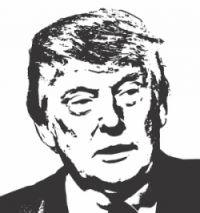Trade in the stock market, like any other trade, is frail to disasters that strike at the national level. The impact that comes with such disasters is negative, of course, and far reaching as well. The market can drop in a drastic slope down to worrying levels, and this may take some time before normalcy prevails again. Those who have invested in the stock market have no choice than to brace the loss and start afresh, which is, after all, not so easy to put up with.
This week marks the 50th anniversary of the tragic assassination of President John Fitzgerald Kennedy, followed by the shooting of his accused assassin Lee Harvey Oswald on national TV. The stock market was closed shortly after the President’s death and it remained shuttered during his funeral on Monday.
What happened next? The market went into a “free fall,” right? Nope. On Tuesday, November 26, 1963, the Dow gained 32 points (+4.5%). Then came Thanksgiving Day, after which the market rose further on Friday, gaining an impressive 5.5% in the week after the shooting of a popular President.
The Dow continued to rise in December (+1.75%), closing 1963 up 17%. These double-digit gains continued for the next two years, as the Dow rose 14.6% in 1964 and 10.9% in 1965. As it turned out, the economic benefits of the Kennedy-Johnson tax cuts in 1963-64 overrode the tragic events in Dallas.
Sourced from: http://www.crossingwallstreet.com/archives/2013/11/what-happens-to-stocks-when-disaster-strikes.html
Natural calamities are unpredictable, unavoidable and unpreventable too. But when they strike, they really leave stock market fraternity counting loses. Such disasters as earthquakes, floods and other detrimental disasters that lead to closure of operations in many companies and services at the national level are a big threat to the market, as the halt of these operations means an obvious drop in the market. Japan’s earthquake catastrophe and the closely consecutive tsunami are some of those disasters that traders in stock market the world over will remember for a long time.
The biggest earthquake on record to hit Japan in 140 years sent stock markets across the globe sharply lower, while the yen and oil prices also fell.
The quake was followed closely by a 10-metre tsunami that killed hundreds of people and swept away everything in its path. The death toll is expected to rise.
Auto plants, electronics factories and oil refineries were shut across large parts of the country. Several airports, including Tokyo’s Narita, were closed and rail services halted. All of the country’s ports were closed.
Historically, big disasters have rarely caused big drops in stock markets immediately after they happened, but their consequences on the economies and markets were felt long after.
On the day Hurrican Katrina hit Louisiana, August 29th 2005, crude oil prices on the New York Mercantile Exchange closed at $67.20 a barrel, up 1.6 percent, after touching a high of $70.80 a barrel in earlier electronic trading.
Sourced from:http://www.cnbc.com/id/42026484
Any political wave headed the wrong direction can also be a red flag for the stock market trading. The possibility of an unsuitable person taking charge of the political front is a threat enough to the traders in the market. The possibility of a dangerous change in the political platform means that any unreasonable decision-making in the leadership front can be a great downfall for the market.
Earlier this year, Wedbush Securities trader Ian Winer warned that the stock market could lose half its value if Donald Trump were to win the presidency.
He said Trump’s “third-grade economics” would be “bad for home builders, bad for everybody, but most of all bad for the United States of America.”
Mark Cuban isn’t that much more bullish on the presumptive Republican presidential nominee.
 Still, the billionaire reality-TV star said in an interview on CNN Monday night that Trump in the White House would likely mean disaster for stocks DJIA, +0.44% SPX, +0.34% COMP, +0.64%
Still, the billionaire reality-TV star said in an interview on CNN Monday night that Trump in the White House would likely mean disaster for stocks DJIA, +0.44% SPX, +0.34% COMP, +0.64%
“I can say with 100% certainty that there is a really good chance we could see a huge, huge correction,” he said. How huge? More than 20%. Cuban explained that the uncertainty Trump would bring to the White House is “the last thing Wall Street wants to hear.”
Sourced from:http://www.marketwatch.com/story/mark-cuban-warns-of-stock-market-disaster-if-trump-becomes-president-2016-05-17